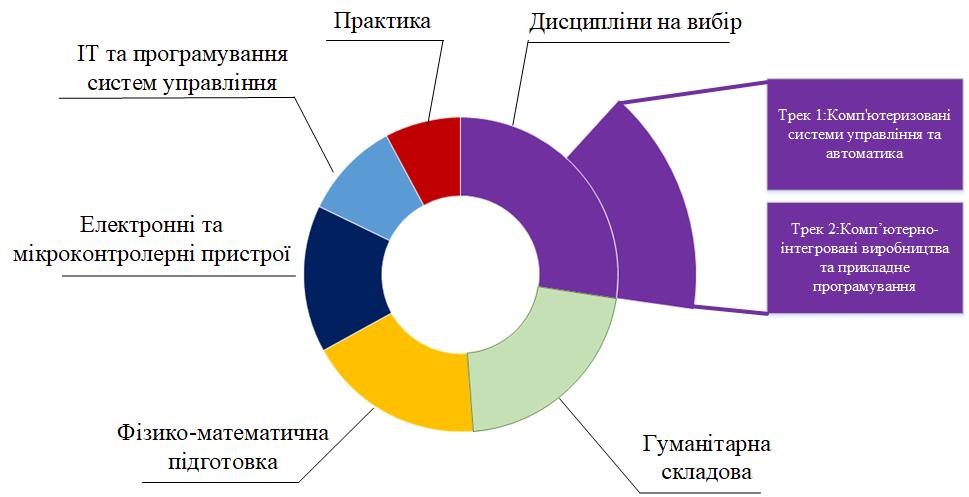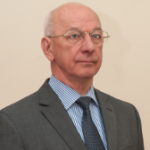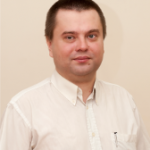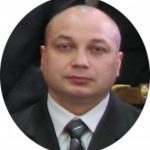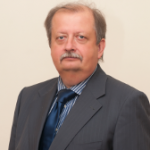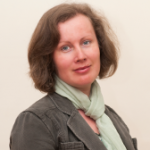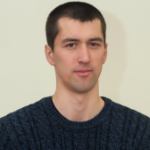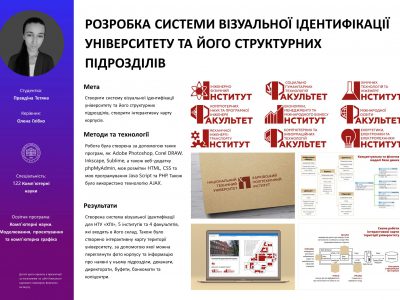174
Automation,
computer-integrated technologies and robotics
«Автоматизація описує широкий спектр технологій, які зменшують втручання людини в процеси. Це включає використання різноманітного обладнання (вбудованої електроніки), систем керування та розробки спеціального програмного забезпечення, яке може реалізувати багатозмінні алгоритми високого рівня.
Звіт Світового банку про світовий розвиток за 2019 рік свідчить про те, що в нових галузях технологічного сектора люди поступово витісняються автоматизацією.» (wikipedia.org)“Automation describes a wide range of technologies that reduce human intervention in processes. It includes the usage of various equipment (embedded electronics), control systems, and the development of specific software that can realise multi-variable high-level algorithms.
The World Bank’s World Development Report 2019 shows evidence that in the new industries of the technology sector the human workers are being gradually displaced by automation.“

Bachelor
of automation, computer-integrated technologies and robotics
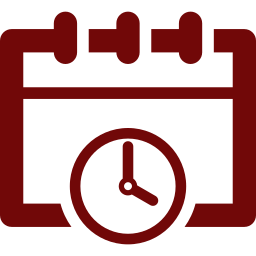
Training period
4 years / 240 ECTS credits

The form of study
full-time
correspondence

Навчальний план.
characteristics of the educational program
The main focus of the educational program: the program is designed for students who aspire to become specialists in the field of automation of technological and production processes using the most modern information and computer technologies. Students receive in-depth knowledge in the field of the theory of automatic control of complex adaptive systems, information collection, processing and transmission systems, computer diagnostics and data analysis systems, programmable controllers and specialized microprocessors, information management and distributed systems.
Our graduates work in industrial automation and robotics, digital signal and image processing, systems for collecting and processing large volumes of data (Big Data), designing Internet of Things (IoT) components, etc.
Features of the program
high-quality, modern laboratory base with equipment for laboratory work, independent scientific and practical work, research, execution of sample orders
practical work on the use of technological equipment provided by our partners from the business environment and manufacturers
wide application in the educational process of applied SoftWare and specialized software environments for the automated design of automation systems, software development
participation in international exchange programs, the possibility of internships in international companies
After studying in the 1st year, there is a choice of the following educational trajectories:
Professor PODUSTOV MYKHAILO (guarantor of the bachelor’s educational program) Doctor of Engineering | Professor HAPON ANATOLII Candidate of technical sciences | |
Professor KACHANOV PETRO (guarantor of the master’s educational program 1.9 years.) Doctor of Engineering | Head of Department ZUIEV ANDRII Candidate of technical sciences | |
Head of Department Docent DZEVOCHKO OLEKSANDR (guarantor of the master’s educational program 1.4 years) Candidate of technical sciences | Professor KRASNIKOV IHOR Candidate of technical sciences
| |
Professor IVASHKO ANDRII Candidate of technical sciences | Docent YEVSINA NATALIA Candidate of technical sciences | |
Docent LYSACHENKO IHOR Candidate of technical sciences | Docent YEVSEIENKO OLEH Candidate of technical sciences | |
Senior Lecturer КKRAVCHENKO YANA Doctor of philosophy |
|
Educational trajectory – Computerized control systems and automation
The educational trajectory involves learning the principles of construction and methods of designing hardware and software components for automation systems of technological and production processes using the most modern information and computer technologies.
Computerized control systems and automation is an educational path that trains specialists in the field of development of control programs and control computerized complexes for industry, transport, energy, security services, etc. The main competencies of such specialists are the development of effective hardware and software control systems based on RISC processors, modern microcontrollers and microelectronic components.
The applicant, who studied on the educational path “Computerized control systems and automation”, will be able to develop automation devices and computing equipment based on modern electronic, microelectronic, microprocessor elements and kits, programmable logic tools, perform analysis and propose improvements to the structure of automatic control systems, carry out diagnostics of the operation of both individual digital devices and control systems as a whole. Specialists also receive thorough knowledge and skills in the organization of control systems and management of objects and processes at a distance through special communication channels, the use of telecommunication systems and cloud technologies. Our students learn modern languages and programming tools at a level that allows them to easily fit in with the most famous application software developers.
Learn more about the educational trajectory – Computerized control systems and automation on the website of the department
Educational trajectory – Computer-integrated production and applied programming
The educational trajectory considers computer-integrated management systems of technological objects and complexes as a subject of study. It is focused on the development of both control systems themselves from lower to higher levels, as well as application software for devices and systems that are used to control technological processes and equipment in various industries.
Computer-integrated production and applied programming is the design of control systems for a given technological process or production line based on specialized components produced by leading manufacturers of automation equipment (ARIES, VIPA, ABB, SIEMENS, FESTO, etc.). One of the most responsible stages is the creation of application software that implements control algorithms and models of control objects for industrial controllers included in computer-integrated control systems.
The educational trajectory “Computer-integrated production and applied programming” provides for the training of modern specialists in the development and maintenance of computer-integrated control systems and their software. It is focused on modern technologies, the implementation of which is impossible without the integral application of microprocessor and computer technology, which ensures the solution of the tasks of coordinating the functioning of individual subsystems, the use of intelligent decision-making subsystems based on databases and knowledge with the use of modern software.
Learn more about the educational trajectory – Computer-integrated production and applied programming on the website of the department
Graduates' suitability for employment and further education
Learn more about the companies and enterprises that offer employment for students and graduates of our institute, as well as get acquainted with the requirements, duties and skills of candidates for current vacancies, possibly by following this link.
A student who has completed training under this educational program and received a bachelor’s degree can continue his studies in universities of Ukraine and abroad to obtain the next (master’s) level of higher education in the relevant educational-professional or educational-scientific programs.
Приклади студентський дипломних робіт
If you are our graduate, leave your feedback, it is important for us to hear your opinion. Please fill out, this survey form.
We are on social networks:
Спеціальності 105 Прикладна фізика та наноматеріали надається особлива підтримка. Подаючи заяву з 1-м пріоритетом на цю спеціальність, Ви значно збільшуєте свої шанси на вступ на бюджет!
РОЗРАХУНОК КОНКУРСНОГО БАЛУ для вступу на спеціальність 105 Прикладна фізика та наноматеріали
КБ = 0,5×П1 + 0,2×П2 + 0,2×П3 + 0,1×А
П1 – оцінка з української мови
П2 – оцінка з математики
П3 – оцінка з фізики або іноземної мови
А – середній бал атестата
Остаточно конкурсний бал (КБ) множиться на додаткові коефіцієнти. Регіональний 1,02 – для міста Харкова. Галузевий 1,02 – для поданих заяв з пріоритетністю 1 та 2 на спеціальності, яким надається особлива підтримка. Сільський 1,05 – для осіб, зареєстрованих у селах та які здобули повну загальну середню освіту у закладах освіти у рік вступу, що знаходяться на території сіл, для спеціальностей, що користуються особливою підтримкою.
